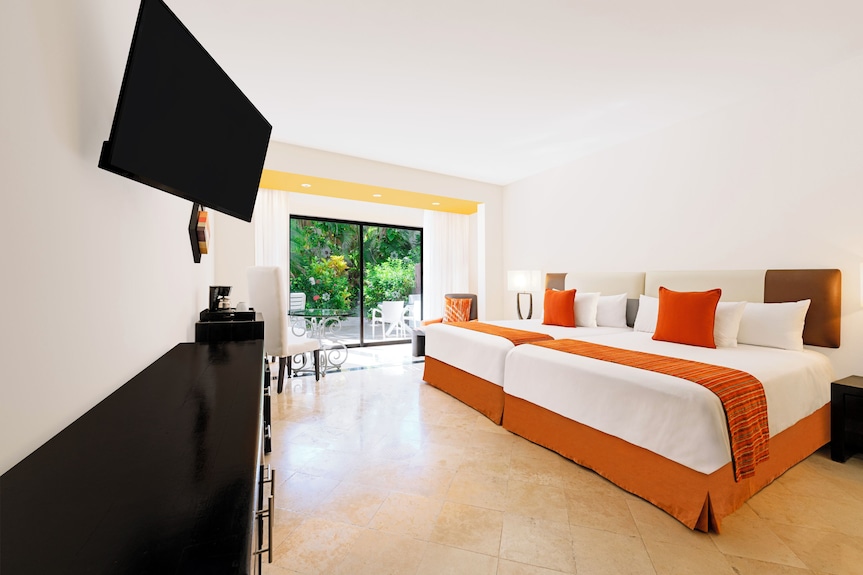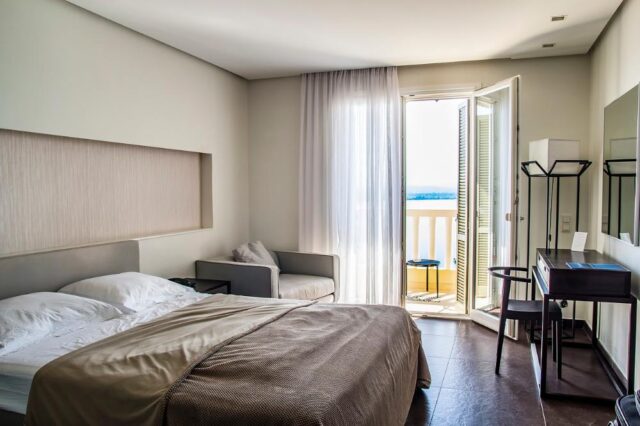When checking into a hotel, the last thing on your mind is the potential lurking dangers of mold. Yet, what might seem like a minor inconvenience—a damp smell, a dark spot on the wall, or even a slight mustiness in the air—could lead to significant health risks and emotional distress during your stay.
Mold thrives in environments that are warm and humid, often making hotel rooms a prime breeding ground. Ignoring the signs can transform a relaxing getaway into a health nightmare.
So, as you unpack your bags and settle in, take a moment to be vigilant. Understanding the implications of mold and recognizing its presence can safeguard not only your well-being but also the quality of your escape from everyday life.
In this article, we’ll explore why it’s essential to be proactive about mold during your hotel stay and how to address it decisively, ensuring your trip remains both enjoyable and safe.
The Hidden Dangers of Mold in Hotel Rooms

When you step into a hotel room, the last thing on your mind might be mold lurking in the corners. Yet, this insidious fungus can thrive in damp and poorly ventilated spaces, often hidden from immediate view.
What may seem like an ordinary stain could be a sign of a much bigger problem, one that can affect not only the air quality but also your health and comfort during your stay. Reactions can range from mild allergies to severe respiratory issues, making it crucial to be vigilant.
The musty odor, visible spots, or condensation on windows are not just aesthetic nuisances; they may indicate a toxic environment waiting to impact your well-being. Being aware of these hidden dangers is vital, as mold can turn what should be a relaxing getaway into a health hazard.
Identifying the Signs of Mold in Your Hotel Room

Identifying the signs of mold in your hotel room can be a subtle yet vital task during your travels. As you step through the door, take a moment to scan your surroundings for unusual musty odors or dark spots, often hidden on walls, ceilings, or even behind furniture. If you notice peeling wallpaper or damp stains, these could be telltale signals that mold is lurking nearby.
Pay close attention to areas where moisture tends to accumulate: the bathroom, under sinks, or around air conditioning units, where humidity can create an ideal breeding ground for mold. Moreover, if you experience unexplained allergic reactions, such as sneezing or itchy eyes, consider that you might be sharing your temporary abode with unwanted fungal guests.
Trust your instincts—if something feels off, it’s best to address it immediately, as mold can lead to health issues and negatively impact your overall stay.
Health Risks Associated with Mold Exposure
Mold exposure in hotel rooms can pose significant health risks that should never be ignored. From sneezing and coughing to more severe conditions like asthma and allergic reactions, the symptoms can vary vastly from one individual to another.
Individuals with pre-existing respiratory issues, young children, and the elderly are particularly vulnerable, often experiencing heightened sensitivity to mold spores. The insidious nature of mold means that even if it isnt visible, harmful mycotoxins can still permeate the air, leading to long-term respiratory issues or exacerbating existing health problems.
In some cases, prolonged exposure may lead to neurological effects, skin irritations, or chronic sinus infections. Thus, vigilance in recognizing and addressing mold signs during your stay is not just advisable; it’s essential for your health and well-being.
Conclusion

In conclusion, recognizing and addressing the signs of mold in hotel rooms is essential for ensuring both your health and well-being during your stay. Mold can pose significant risks, including respiratory issues and allergic reactions, which can turn a relaxing getaway into a health hazard.
If you notice any suspicious signs—such as unusual odors, visible mold, or water damage—it’s crucial to report these to the hotel management immediately. Additionally, considering a professional mold inspection in Tampa may be worthwhile for those who have ongoing concerns about mold exposure in various environments. By staying vigilant and informed, you can protect yourself and enjoy your travels without compromising your health.




